5. Boyz n the Hood
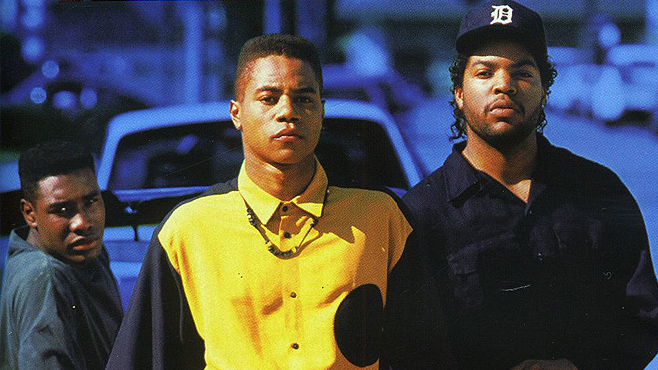
At 23, John Singleton directed one of the most impressive debut films of all-time, and Boyz n the Hood deconstructs the myths behind gang violence by showing a week in the life of an inner city friend group. Tre (Cuba Gooding Jr.), Doughboy (Ice Cube), and his brother Ricky (Morris Chestnut) are all wary of the gang violence that surrounds them and are keen to find a better path, with Ricky looking at a positive future that includes a football scholarship. Just as these friends find genuine hope, Ricky is murdered by a gang leader, causing a disowned Doughboy to retaliate with violence and avenge his brother’s death.
Much of the film is centered around the relationship between Tre and his father Furious (Laurence Fishburne), who teaches him about the steps to manhood, and it’s the tragic lesson that losing friends to violence is a part of growing up that remains so heartbreakingly true.
Furious is ultimately able to convince Tre to give up his desire to seek revenge on Ricky’s killers, but Tre isn’t able to impart the same wisdom to Doughboy, who in the closing credits is revealed to be yet another victim of senseless gang-related violence. The permanence of this cycle of vengeance and retaliation doesn’t seem like it can ever be broken, and while Singleton is able to find some light in Tre’s decision, it doesn’t distract from the brutal system that he’s spotlighting.
4. Rosemary’s Baby
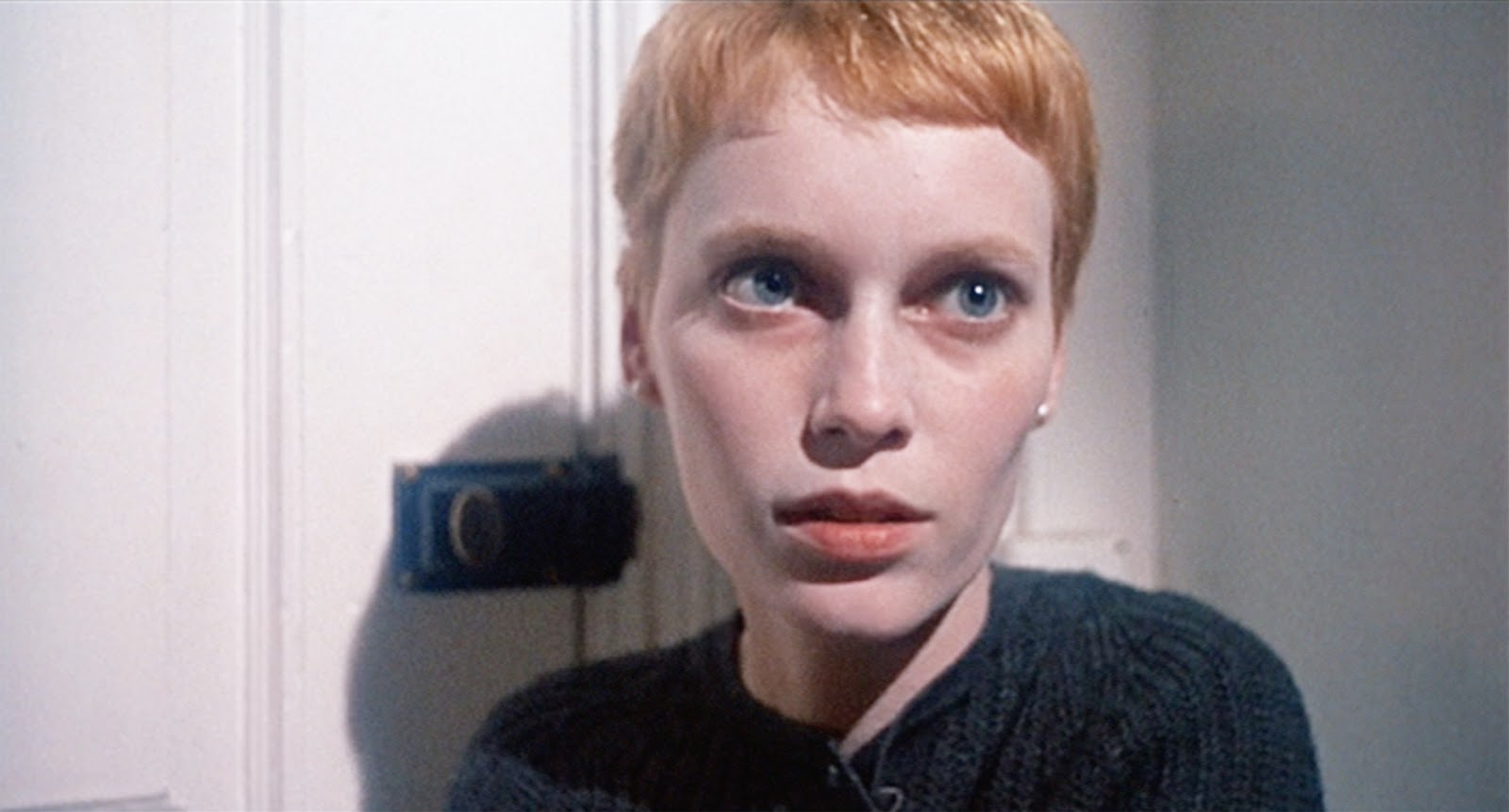
Often the most effective horror films are the ones that build on paranoia and a rising sense of dread, and there are few horror films that show as much restraint as Rosemary’s Baby. Rosemary (Mia Farrow) begins to fear for the life of her unborn child, which was conceived when she was raped by a demonic creature that inhabits her nightmares.
As Rosemary’s husband (John Cassavetes) becomes increasingly involved in the cult activities of their neighbor tenants, she constantly has her fears dismissed as she investigates the sinister practices of this cult. It’s unclear at first if these are delusions, but once Rosemary is restrained and drugged by the coven it’s clear that all her fears were warranted.
In the film’s closing moments, Rosemary is at first told that her child died at birth, but soon learns the even more horrifying truth that her child is the son of Satan, and that her husband was complicit in helping the coven pull off this scheme. Even when she’s forced to look at this monstrous creation she birthed, Rosemary finds herself subjected to the role of mother, and forced to fulfill the duty of loving her child even if it was spawned by the Devil.
The meek expression on Mia Farrow’s face at the end, in which she realizes that this fate was inevitable is completely haunting; Rosemary’s Baby’s twist itself is more inevitable than shocking, but it remains effective due to the uncompromising bleakness at its center.
3. There Will Be Blood
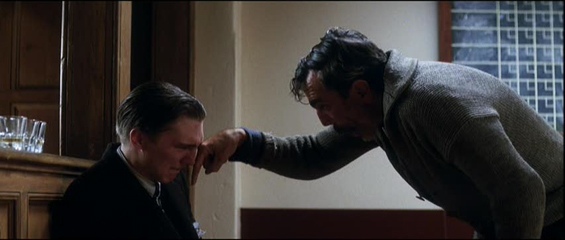
Paul Thomas Anderson’s masterpiece is a common pick for the best film of the 21st Century, and there has never been a cinematic anti-hero who personifies greed and obsession quite like Daniel Plainview.
In the greatest role of his career, and perhaps the greatest acting performance of all-time, Daniel Day Lewis chews scenery as an uncompromising innovator whose capitalistic intents forever destroys both his sanity and his relationship with his son. The only consistent relationship Plainview has is with local preacher Eli Sunday (Paul Dano), who remains the only person to truly get under Plainview’s skin when he forces him to confess to mistreating his son during a religious ceremony.
Plainview isn’t just determined to become wealthy, but to belittle everyone around him and subject them to his thinking. After forcing Eli to renounce his faith for the sake of purchasing a new property, Plainview tells him that the oil reservoir is worthless and beats his longtime companion to death.
It’s important that Plainview taunts Eli before killing him; he has to make Eli knows that he would never make a mutually beneficial deal with him, and he’s determined to break the spirit of this otherwise upright man. The closing moments of There Will Be Blood show that Plainview’s cruelty knows no bounds, and that only in total annihilation will he find closure.
2. Se7en
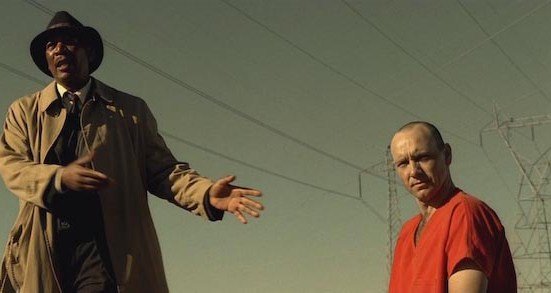
David Fincher is renowned for his dark, provocative endings, but none of his films end quite as grimly as Se7en. Detective William Somerset (Morgan Freeman) ends the film concluding that “Ernest Hemingway once wrote, “The world is a fine place and worth fighting for.” I agree with the second part,” and like many of Fincher’s heroes he’s willing to fight evil even if he knows it’s a losing battle.
Both Somerset and his rookie partner David Mills (Brad Pitt) have their morality tested as they track the gruesome crimes of a John Doe (Kevin Spacey), but it’s Mills who is unable to control his own wrath when he discovers his wife’s severed head, taking the life of the man who has been tormenting him.
In taking Doe’s life, Mills has fallen into the trap of the killer’s plan, replicating the last of the Seven Deadly Sins that each of his murders represents. There’s no catharsis in this conclusion; Somerset and Mills spend the entire film looking for a killer that simply turns himself in, and Doe’s death offers no sense of resolution for Mills.
The two detectives are crafted to be complete opposites, with Somerset as the veteran whose wary of the wickedness of the world and Mills as a more idealistic rookie who is just being exposed to real darkness. Neither men are able to handle these devastating incidents, but it’s Mills succumbing to his darker instincts that fully convinced Somserset of the futility of their work.
1. American History X
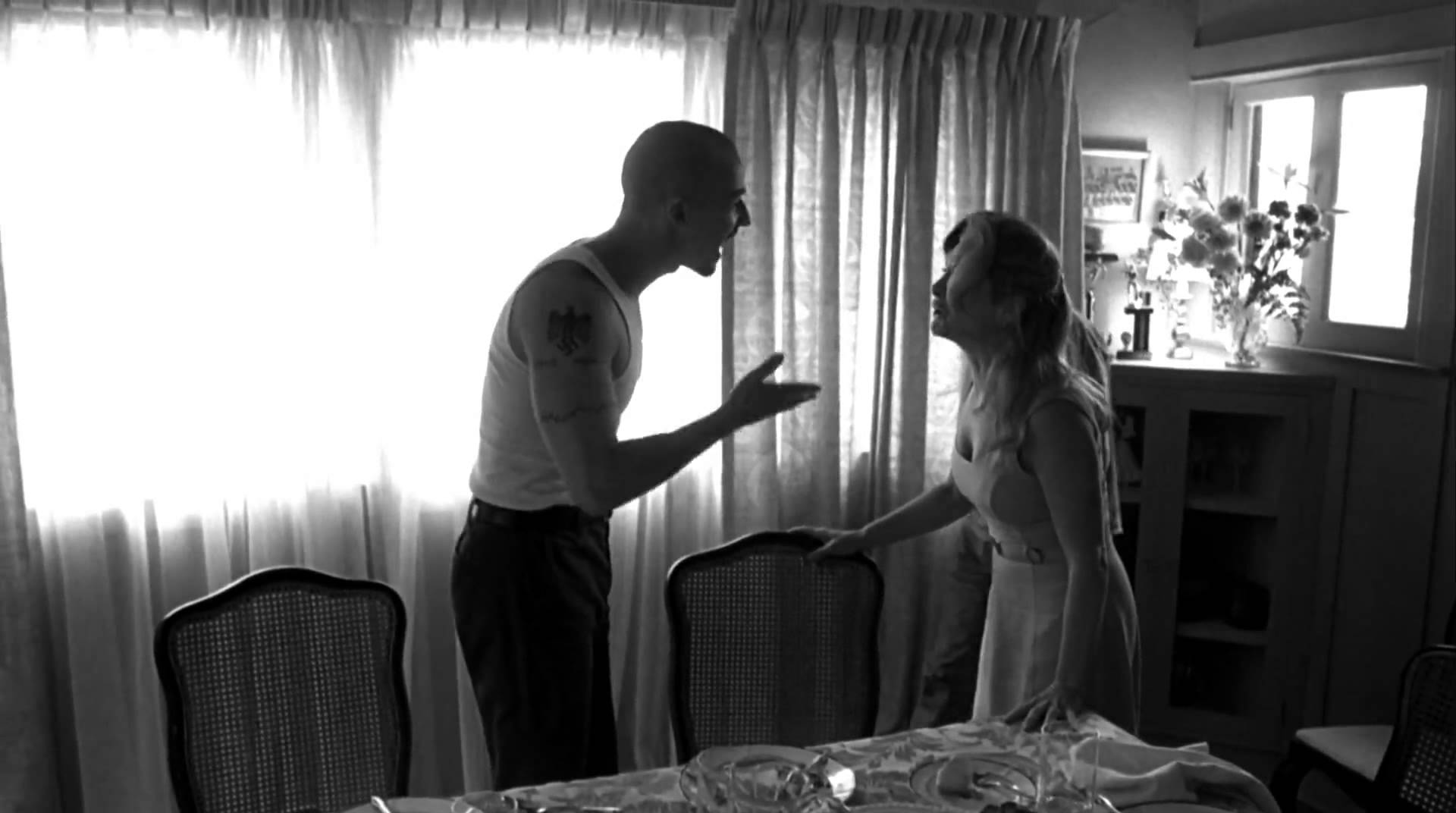
A devastating warning against hatred, American History X is a film that shows how even the most extraordinary moral development isn’t going to end cyclical racial violence. Edward Norton delivers his greatest film performance to date as Derek Vinyard, a white supremacist whose imprisoned for the murder of a black man.
Derek goes to hell and back while in prison, and as he begins to sway away from neo-Nazi thinking, he’s brutalized by members of the Aryan Brotherhood and spurned by his former allies. The only hope Derek has left is that he can turn his brother Danny (Edward Furlong), who has also become deeply infatuated with white supremacy.
As Derek finally leaves prison, it seems as if he may finally have found redemption and will be able to give Danny the father figure that he never had, as their own father’s hateful speeches and untimely death initiated Derek’s Nazism. Danny is getting the help he needs, but when he returns to school he’s brutally killed by a student antagonized by his previous racial tirades.
Compared to the beginning of the film, where the death of Derek’s father sparked nothing but violence and rage, Derek’s reaction to his brother’s death is nothing but sorrowed and regretful. Despite Derek’s transition, the ripple effects of his past sins still claim the life of the person he loves the most, making American History X a powerful, yet entirely grim experience.